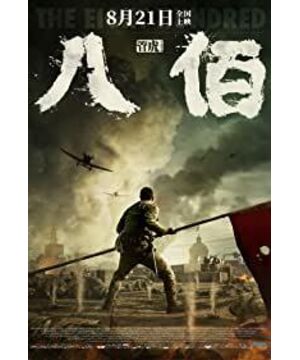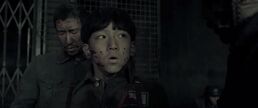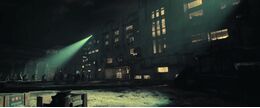In 1995, my hometown suffered a major flood. The night before the flood discharge, we went to my aunt's house. The aunt's family lived on the seventh floor, and the flood could not come up, but people were trapped upstairs. That year, when I was five years old, I had no specific awareness of the disaster. I only remembered that I looked out the window bored every day. There was a dam not far away, and I could vaguely see the scene of flood control personnel building sandbags. The thrill of fighting floods can only be experienced when I look up relevant materials when I grow up. But when I was young, I was not afraid, but somehow believed that the flood would recede and someone would protect us.
At the beginning of 2020, the epidemic broke out. My family and I are fortunate not to be in the hardest hit area. We watched the progress of the front-line anti-epidemic through the Internet, and participated in the battle after watching: raising funds, contacting protective clothing manufacturers, and connecting with hospitals in need.
It never occurred to me that it would be half a year to sit in the cinema again. Body temperature is taken, health code is scanned, and every two people will be separated by an empty seat after entering the venue. What's even more mixed is that the first movie I watched after the cinema reopened was "Eight Hundred", which was about family and country feelings and a war that was watched.
"Eight Hundred" depicts a group play, dozens of characters, soldiers, civilians, and reporters take turns to play, each with its own story. However, in order not to appear messy, the film cuts the perspective, and the Suzhou River is too cleverly framing, which geographically strengthens the sense of distance.
The first wait-and-see is the wait-and-see of the soldiers in the Sixing Warehouse to the concession. Represented by the Dragon Boat Festival played by Ou Hao, most of the soldiers have never been to Shanghai, and have a simple yearning for Shanghai. Some even choose to join the battle just to see Shanghai with their own eyes. In the concession at this time, the wine lights are red, the fairy music is fluttering, and the prosperity is almost distorted. In the minds of the soldiers, the concession is their highest imagination for a better life. In the first third of the film, the two sides of the Suzhou River are almost completely separated, and the director has also strengthened this separation in lighting, scenery and soundtrack. "Heaven over there, hell over here."
The second level of wait-and-see is the wait-and-see of the people in the concession on the Sixing Warehouse. The director did not spare a lot of shots, which enriched the civilian population. The middle-class wives sat around the table and played mahjong. The battle situation on the other side of the Suzhou River was just a conversation between them playing cards, and even more interesting than real estate information. The small businessman opened the breakfast stall as usual, and occasionally cared about the war, but more worried about whether his business would continue. The children stood by the river and looked to the other side, ignorant of the tragic so close at hand, and their faces were filled with the innocence of childhood. The scene of the singer and the troupe has been continuously strengthened. In addition to exaggerating the atmosphere of "singing the backyard flowers across the river", there are more metaphorical colors - what is maintained in the concession is only superficial peace and prosperity, and the common people treat the war as an outlier Yes, everything that happened in the Four Lines Warehouse was like a show to them.
The third level of wait-and-see is more special, that is, the reporters are watching the battle through the lens. At this time, both Chinese and foreign reporters stayed in the safe area of the concession. They are more concerned about the movements in the four-line warehouse than ordinary civilians, but their eyes are still a kind of indifference of bystanders. They drank, gambled, chatted, and enjoyed themselves. When there was movement on the other side, they hurriedly raised their cameras, hoping to take a blockbuster news photo. In their eyes, war is a good photographic material, and it is a capital that they can show off in their careers, and the things in their frame still lack the warmth of humanism at this time.
The group play of "Eight Hundred" unfolds slowly like a long picture scroll, recording the appearance of all beings in the shadow of war. Big and small characters take turns to play, if you only watch the movie once, it is difficult to remember the name of each character in it. Even in many cases, the name is weakened, and only when the character is going to die, the character will call out his full name. The most impactful episode is that the Sixing warehouse was raided by the Japanese army, and the death squad jumped off the building with an explosive bag and perished with the Japanese army. There was no time to leave a lingering or heroic last word. They called their names one by one, and then one by one. Jump down, blood flying. The name is no longer just a title, it has become a reference to a piece of history, endowed with a very tragic color. Amortized, there are not many scenes of each character in the film, so the requirements for the actors are even higher - the audience can know nothing about the life of a small character, and the actor must know all the secrets of the character in order to give himself The role played creates a depth.
If different viewing angles classify the characters in the film horizontally, then the changes in the characters' attitudes and behaviors divide the story vertically. The progress of the plot of "Eight Hundred" can be summed up as a process from "waiting and seeing" to "participating". People on both sides of the Suzhou River, for various reasons, began to try to participate in each other's world.
There are roughly two turning points in the attitude change of people in the concession. The first time was when the Japanese army dropped poison gas bombs on the Sixing Warehouse, and when the poisonous gas floated over the water, civilians for the first time officially felt the panic of war. Since then, "waiting and watching" has become "gazing", and the original atmosphere of watching the lively has become solemn. The second time was the indiscriminate shooting of the Japanese army in a frenzied manner, resulting in heavy casualties among civilians. This sneak attack finally pushed the Chinese people and inspired the patriotism of the Chinese people. Passive "gazing" became active "participation". Righteous people risked their lives to send telephone lines to the 800 warriors; women temporarily left the mahjong table to donate supplies; journalists were no longer satisfied with shooting long-range scenes, but went deep into the front lines to collect real-time battle situations. When heaven is no longer heaven, hell is no longer hell.
There are also two obvious nodes in the participation of the Eight Hundred Heroes in the concession. The first time was as a deserter. Dragon Boat Festival and Lao Abacus tried to escape from the waterway, but failed because they were threatened by gunmen. The civilians on the shore mistook them for heroes, cheered and set off fireworks. This scene was almost all shot from the perspective of the Dragon Boat Festival. The fireworks in the sky made people feel a strong sense of unreality, but they also planted the seeds of heroism in his heart. The second "participation" is the climax of the whole film, that is, withdrawal. This end and that end of the bridge have completely become a community of destiny. The onlookers put down their binoculars and took up their weapons; the drumbeats of the performers chimed with the sound of gunfire; civilians stretched out their hands, ready to welcome soldiers who survived the hail of bullets.
The film ends with a close-up of one hand. According to historical data, this is a war of "prosperity despite defeat", and "Eight Hundred" focuses on the stimulation of the national spirit by the defense of the Sixing Warehouse. In the long years, there has never been an absolute victory or defeat. Peace is hard-won today, and remembering history is far more important than commenting on history.
View more about The Eight Hundred reviews











